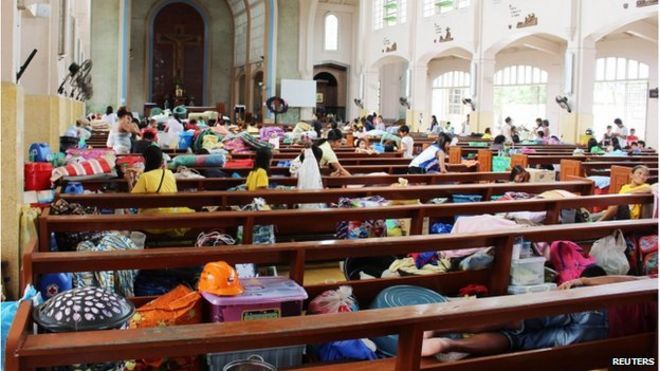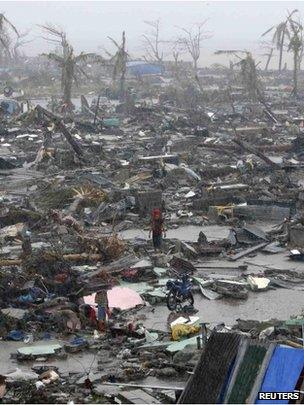
Policymakers have a "once in a generation" chance to reform insurance to help those most at risk from climate change impacts, say researchers.
A Cambridge University team is calling for insurance reforms to be explicitly mentioned in the UN's forthcoming Sustainable Development Goals.
They outlined their proposals at an insurance summit at the UN, New York.
G7 leaders recently pledged to help 400 million people have access to insurance cover against extreme weather events.
The researchers produced a policy brief that was presented to the global gathering at the UN headquarters.
"My role was to highlight the policy implications of having insurance at the centre of requirements to protect exposed populations," explained policy-brief author Ana Gonzalez Peleaz, a fellow from the Cambridge Institute for Sustainability Leadership.
"The lack of effective insurance regulation is a problem for accessing insurance across all parts of society."
For example, she told BBC News, there were a number of nations that did not allow mutual insurance companies - these are companies that are wholly owned by policyholders, with the sole purpose of providing cover for its members and policyholders.
"The lack of regulation can have devastating consequences for customer protection and also insurers cannot really grow if the regulatory environment is not supportive."
The policy brief, quoting UN data, said that, over the past two decades natural disasters had affected 4.4 billion people and had claimed 1.3 million lives.
"Both developed and developing countries are affected by natural hazards and associated disasters, of which 70-80% are driven by climate-related risks," it observed.
Critical year
The summit was attended by UN Secretary-General Ban Ki-moon, who told delegates that the insurance industry could and must play a strong role in shaping a more sustainable future and urged it to show strong leadership.
"This is a critical year for action," Mr Ban said, referring to a series of high-level gatherings, including a UN sustainable development summit in September and the UN climate summit in December.

"With these events, the world has an historic opportunity to adopt a new set of sustainable development goals and to put the world on track for long-term, low-carbon, climate-resilient growth."
Mr Ban's comments came weeks after the G7 Summit in Germany at which leaders of the world's leading economies pledged to increase access to insurance for 400 million people in the most vulnerable nations by 2020.
However, Dr Gonzalez Peleaz said that despite the recognition of the important role the insurance sector could play, there was no explicit reference to access to insurance in the text for the UN's Sustainable Development Goals (SDGs), which are set to be published in September and will succeed the UN Millennium Development Goals.
"Something like the SDGs is not going to be repeated for another 15 or 20 years so just to have an awareness of the issue among governments would be a massive step to build on," she said.
"It is an opportunity of a generation.
"There is still a lot of work to be done but if we could just join forces at the moment, to build on this momentum to reach agreements will help us build a safer and more resilient world."
No comments:
Post a Comment